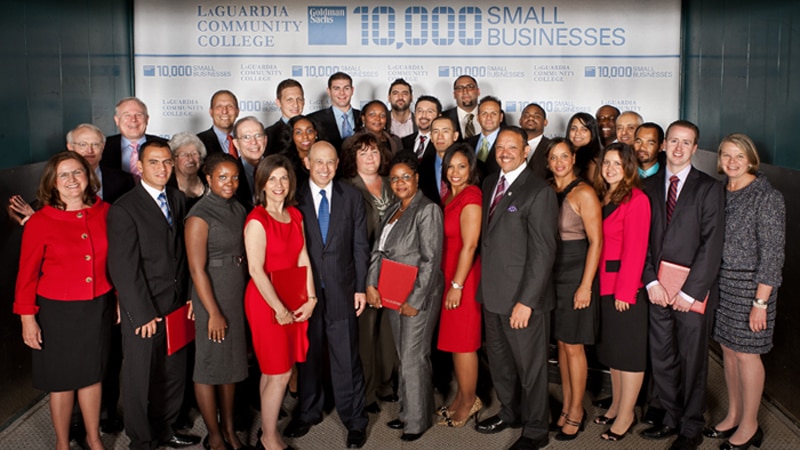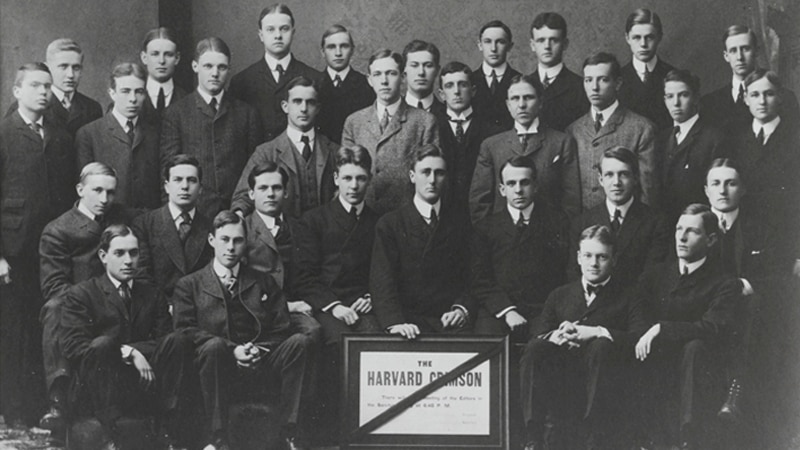With 10,000 Small Businesses, Goldman Sachs Helps to Fuel the Engines of Job Creation and Spark Innovation

Goldman Sachs announces a US$500 million initiative in 2009 to help small businesses create jobs and drive economic growth through greater access to education, financial capital and business support services.
Recognizing the critical role small businesses play in fueling job creation and economic growth, in the late 2000s Goldman Sachs identified an opportunity to help entrepreneurs grow and scale their businesses. 10,000 Small Businesses—announced in November 2009 and launched in 2010—was founded on the positive results achieved through the Goldman Sachs 10,000 Women initiative, a global platform targeted to women business owners in developing and emerging markets that had been introduced the prior year.
10,000 Small Businesses looks beyond the heavily supported startup market to serve established small business owners poised for growth. The firm committed US$200 million to fund business education and support services for these entrepreneurs. The curriculum was designed to target skills that participants could immediately apply, including accounting, marketing, negotiating, and human resource management. In addition, the firm committed US$300 million in lending and philanthropic support to community development financial institutions and other mission-driven small business lenders to spur greater access to capital.
The multi-faceted program is delivered through a partnership-driven model that includes over 100 public and private sector organizations. 10,000 Small Businesses is guided by an Advisory Council co-chaired by Goldman Sachs Chairman and CEO David Solomon, legendary investor and Berkshire Hathaway Chairman and CEO Warren Buffett, Michael Bloomberg, founder of Bloomberg LP and Bloomberg Philanthropies and Dr. Michael Porter of the Initiative for a Competitive Inner City and Harvard Business School.
By 2015, 10,000 Small Businesses had reached small business owners in all 50 states, Washington, DC, and Puerto Rico through the national cohort at Babson College, which is delivered through a combination of in-person and online learning.
Given the program’s primary objective of unlocking the growth and job creation potential of small business owners, a core component of 10,000 Small Businesses is measuring its impact. Revenue and job growth are key metrics used to assess the effectiveness of the program. “Stimulating Small Business Growth,” a 2018 report released by lead 10,000 Small Businesses academic partner Babson College, demonstrates that the program works, with results outpacing the growth reported by US small businesses generally. As of 2019, eighteenth months after completing the program, almost three-quarters (72 percent) of alumni had grown their revenues. This compares with just over half (53 percent) of US small businesses increasing their revenues as surveyed by the National Small Business Association for its “2017 Year-End Economic Report.” 10,000 Small Businesses maintains a 98 percent graduation rate and has created a vibrant network for entrepreneurs, with 86 percent of graduates reporting doing business together.
In the United Kingdom, 10,000 Small Businesses launched in 2010 with the same aim – to spur economic growth and prosperity by providing education to ambitious entrepreneurs. Its graduates are doubling revenues and creating 5 percent more jobs within two years of graduating, following the changes they implement because of the program.
In 2018, nearly ten years after the US launch of 10,000 Small Businesses, more than 2,000 graduates of the program convened in Washington, DC for the 10,000 Small Businesses Summit: “The Big Power of Small Business” — the largest-ever gathering of small business owners in the United States. During the two-day convening, business owners heard from the likes of Warren Buffett, Richard Branson and Sara Blakely, and in a landmark “Day on the Hill,” participants met with representatives from their respective districts to advocate for policies that support the continued ability of small businesses to grow, thrive, and compete. This effort extended to the United Kingdom, with the largest-ever gathering of small business owners in UK Parliament history bringing together over 150 program graduates and 27 parliamentary guests.
10,000 Small Businesses is a tangible example of Goldman Sachs’ historic commitment to supporting entrepreneurs, and to using its intellectual and financial capital and convening power to support economic growth, social mobility, and innovation.




